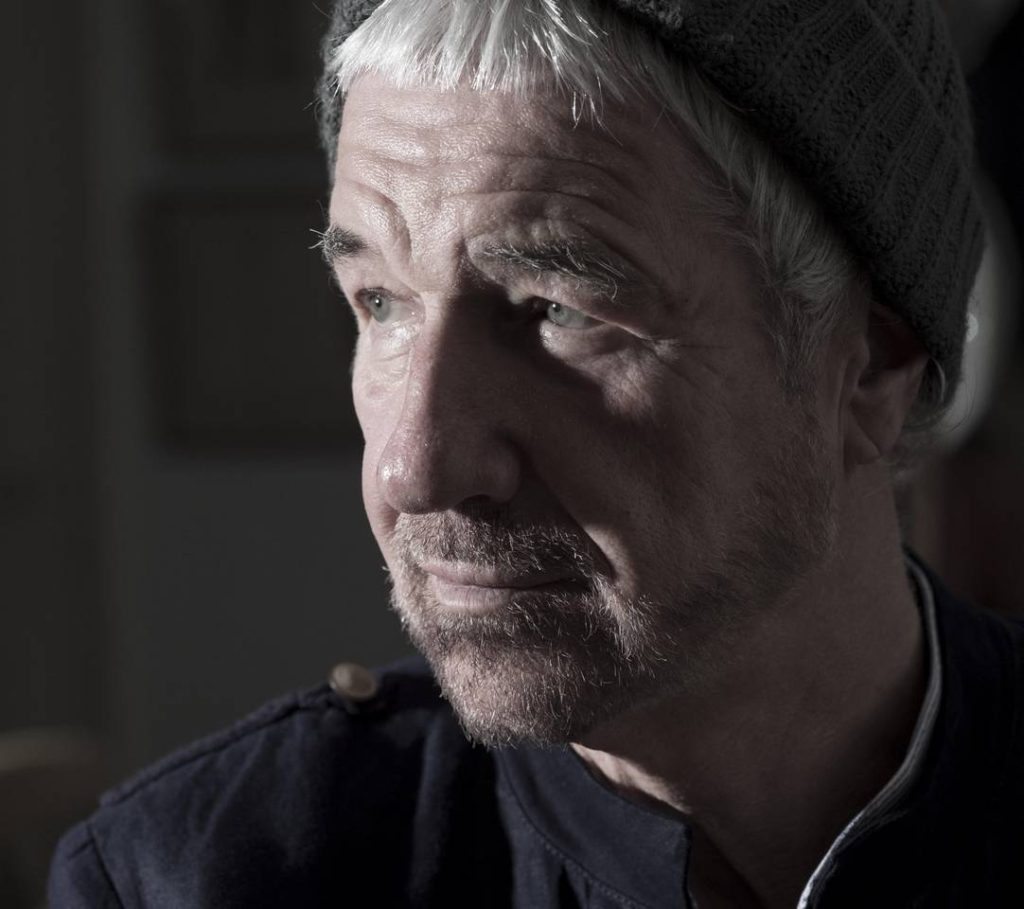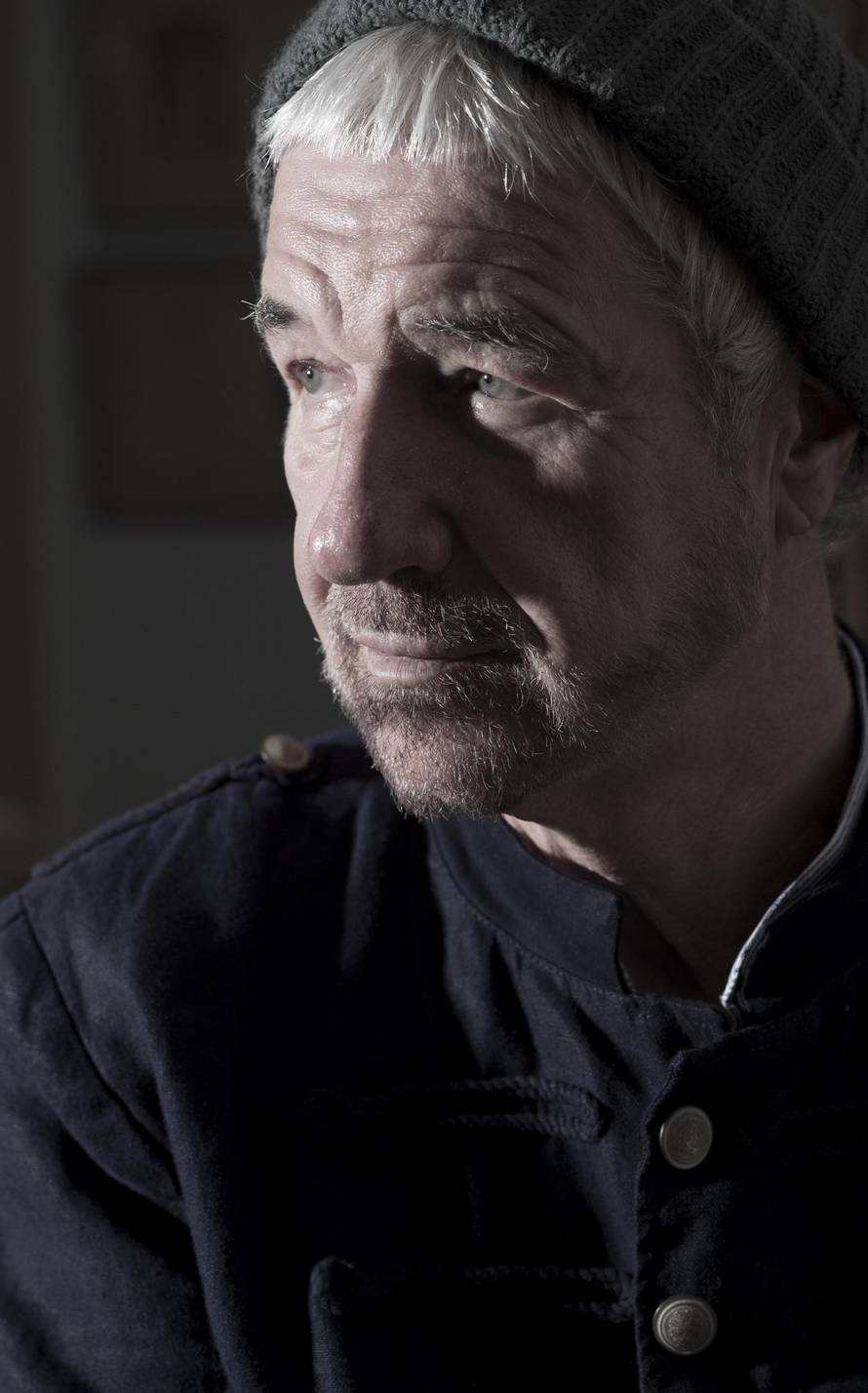
The award winning playwright reflects on the forty years since it was written and talks about this major new production of a play which remains one of his best loved works, regularly performed around the world.
It is 40 years since award-winning playwright Willy Russell wrote Educating Rita – it remains one of his best loved works, regularly performed around the world.
And this month a major new production of the play tours to the Theatre Royal Bath starring Stephen Tompkinson, as frustrated university professor Frank, opposite Jessica Johnson as Rita, his hairdresser student so desperate to learn.
For Willy, 40 years on, it’s a time for reflection on the success of his play.
“When will I ever be free of it?” he jokes. “It’s coming up to its 40th anniversary would you believe?
“When it first opened, I remember saying to Mike [Ockrent] the original director, ‘It’s not actually got much stagecraft to it this, it’s just a series of scenes’.
“So to still be talking about Educating Rita 40 years later reminds me of how gloriously wrong and stupid playwrights can be!”
Willy says he thinks of the play with great affection – not least because of the success of that original 1980 production at the Warehouse Theatre (now Donmar Warehouse) where Julie Walters first played the role of Rita opposite Mark Kingston as Frank.
He says: “The original production came together so well and I worked with people I really adored, Mike, Julie, Mark. Nobody had any big plans for this play, so when something happens so unexpectedly you always have a special regard for it because it came out of nowhere and suddenly made it.”
The success of the play was followed by the hit 1983 movie starring Michael Caine and Walters reprising her role as Rita.
It won huge acclaim, winning BAFTAs and Golden Globes, and Oscar nominations.
Willy recalls: “That’s when everything kind of happened, everything went ballistic during that period. I was very fortunate to always have good strong women around me during that early success. I’m not one to lose touch with reality, but if I ever showed any signs of getting slightly wonderful I’d be cut down and put in my place, rightly so!”
The new UK production, in association with David Pugh and Dafydd Rogers and directed by Max Roberts premiered at Theatre by the Lake in Keswick from April 18 before heading on a UK tour.
Willy says: “I first worked with David when he was an assistant on the very first tour of Blood Brothers in 1985 and we’ve tried to work together ever since and never quite managed to do it for one reason or another, so working with a producer I know and admire is great.”
Willy was there through the rehearsal process – “I’m involved as I would be in any significant new production,” he says.
And Willy confirms the new production will be set “firmly in its own time” of 1979.
The play tells the story of married hairdresser Rita who enrols on an Open University course to expand her horizons. But in her university tutor Frank she finds a frustrated but brilliant academic, a little too fond of a drink, who is initially less than enthusiastic to teach Rita. The two soon realise they have much to learn from each other.
Willy says: “There have been productions that have tried to set it in a contemporary setting, but the difference between education today and 1979 is so vast it doesn’t do the play any favours to make it a contemporary tale.
“People don’t see education as a route to salvation in the way they did in the year this was written.
“The idea then of working class people returning to education was in the air, it was a new and vibrant thing, and the collision of those worlds, of the non-educated and the rather elite red brick university, was a massive collision, but all of that has gone now.
“The Franks of the education world today wouldn’t have the luxury of being able to teach a girl outside of his curriculum who came to his office once a week, someone like Frank would be responsible for at least 300 students today. We’re now so far away from 1979, that there’s actually something kind of exotic about setting it in its own time.
“You can explore that world, design that world, costume that world and fortunately the universality of the play is exactly the same, someone’s struggle to make life better is an ageless struggle, an ageless story.”
Writing Educating Rita was not autobiographical, but Willy can now see himself in his heroine – as he too left school and became a hairdresser before returning to education in his 20s.
And Willy to this day still receives letters and messages from those who felt inspired by Rita to learn after watching the play or the film.
He says: “Not long after Rita first opened, the Open University gave me an honorary MA. I was a bit taken aback when they were so chuffed with it, but then I started to see, what was extraordinary in the late 1970s was this idea, even if you were not of a traditional, educated class, you could find your way back to education. As sometimes accidentally happens, that play caught something in the air at that time.
“People would write to me personally, but I would always say: ‘I’m sure you would have found your own way through anyway’. But it’s always rewarding when someone tells you that because of Educating Rita they decided to change their life for the better.”
What does he believe is the enduring success of the play?
He smiles: “If I could answer that, I’d write the formula, sell it for a lot of money and people could bottle it. One never, ever knows. You could say because it touches a nerve, because it’s about education, because it’s a love story of sorts, or that old Paul Simon line – the thought that life could be better is woven indelibly into our hearts and our bones, it touches that kind of nerve. You can identify all of these things, but none of it really explains it.”
The new production will see actress Jessica Johnson take on the role of Rita – after her acclaimed run in the role in Rebecca Frecknell’s 2017 production at Durham’s Gala Theatre.
In that, she played the role with a North East accent – but she will be a Liverpudlian Rita to star opposite Tompkinson in the new production.
Willy is looking forward to see Stephen Tompkinson take on the role of Frank. “I’ve long admired him as an actor,” he says.
“Frank is a role which has a humour to it but has a real pain as well. I can’t think of anyone more equipped to delving into both of those elements than Stephen.”
Willy, 71, is still based in his home city of Liverpool, so what kept him in his hometown all these years?
“Idleness, lack of ambition?” He jokes.
“Because of the job I do, even before digital communication, a writer didn’t need to be at the centre of things. The issue as to why I left Liverpool never arose, my family are here, my friends are here. Had there been some reason to go somewhere else, I may have done it. I was chair in creative writing at Manchester Metropolitan University for 18 months in 1978, and I worked between Liverpool, Manchester and London back then.
“I’m not carrying a great Scouser flag, I stayed in Liverpool because it suited me, if it was important to me I would have moved. I don’t have that sentimental Liverpudlian thing I don’t believe in it at all. And I like going to Manchester, because I like seeing the second city of the north. I’ve always hated the regional rivalry – it’s nonsense.
“Regional rivalry is a form of tribalism that I absolutely abhor, and it’s encouraged for political reasons, it keeps people at each other’s throat. What I love is the fact of what unites us. We’re all the same people but we have a different accent that’s about it. Why have divisions? I’ve got phenomenal links with Manchester, I’m proud of my links to Manchester, and I can sit down and happily watch any football match.”
And Willy has even become a student again thanks to his new-found passion for art.
He smiles: “It’s wonderful being a student again. I still go to art classes at my old university (Hope University). I started a new module on printing and I thought I’d hate it, but I love it, it’s just wonderful to discover something like that.
“I do a lot of painting, but I’m also still actively writing and producing.
“I’ve never been someone who has a career plan or ambitions in that way, all I do know is that a day in which I don’t create something is a lost day. Whether it’s painting, writing some music, writing a quick poem, I have to do something during a day and as long as I can live my life knowing that each day I’m creating something then that’s great.”
Photo by Paul Cox


